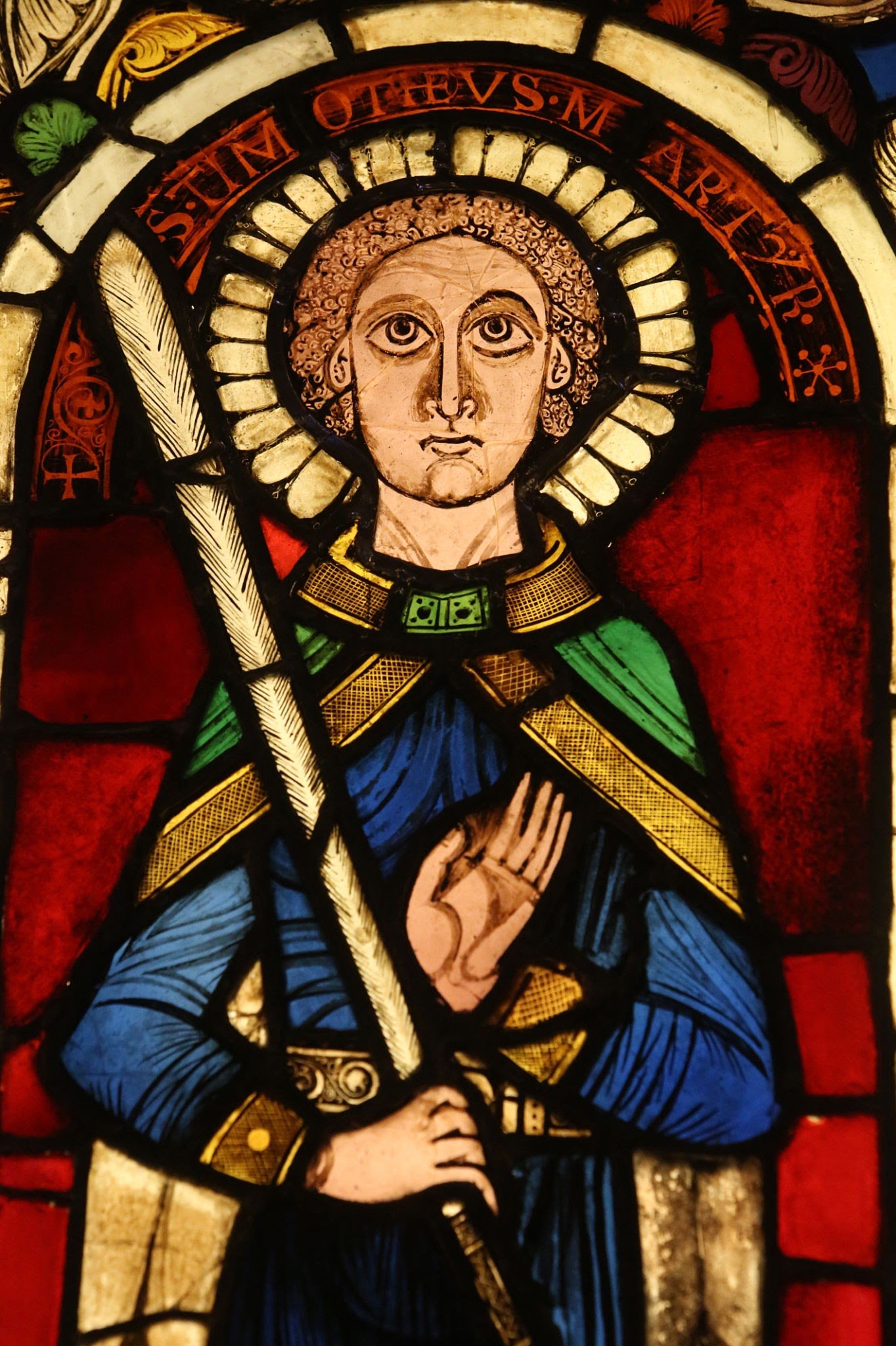Nov. 9: Timothy
Psaul’s companion Timothy is referred to repeatedly in military terms, but there’s little confidence he actually served. But that doesn’t mean he, and other civilians, can’t think of themselves as soldiers of Christ.
Bad Soldier
Timothy is one of Psaul’s most dedicated mentees, whose first trip was probably with him and Silas to Philippi, home of Lydia and Dez. For over a decade, the two worked closely together, and Timothy is credited as a co-author of several Pauline epistles. The two letters in Psaul’s name to Timothy are of doubtful authorship but are noteworthy for the frequent use of soldiering language applied to Psaul’s co-worker.
In 1st Timothy, just a few verses after referring to Psaul/himself as “a man of violence” (v.13, NRSV), hybristēs, the author encourages the young missionary to “strateuō the good strateia, having faith and a good conscience.” (v.18) Psaul, and/or the community that produced this letter, knows that not all soldiers disregard their conscience by being eager to kill or exploiting their office for personal gain. To reject your own conscience is to live without shame and be incapable of embarrassment. The letter sees this as handing yourself over to the Enemy, and Hymenaeus and Alexander are offered as examples of bad soldiers, or, stripped of the metaphor, they are accused of being bad Christians.
*I know what you’re thinking: what about 1 Tim 6:12? That verse uses agōnizomai, it’s an athletic metaphor rather than a military one.
Good Soldier
So then what is the Psauline conception of a faithful fighter? What acts make a good soldier? The answer comes in 2 Timothy 2:3, where the writer makes it explicit, “share in suffering like a kalos stratiōtēs of Christ Jesus.” Kill count does not a good soldier make, but hardiness. Packing a punch doesn’t get you any brownie points in the militia Dei, but taking one does.
Don’t follow the example of the world, with its survive-at-all-costs mentality. No soldier worries about civilian bullshit, verse 4 explains, “the soldier’s aim is to please the stratologeō.” Ultimately it is Christ who calls soldiers into service, the Lord is our enlisting officer, not the world. To please the one who called us, we imitate their service and obey their command(ment)s. If your service looks more like John Wayne than Jesus Christ, then you 👏 are 👏 fµ¢king 👏 it 👏 up. You know how I know? The Duke never served a day in his life, but Jesus is a warrior.

